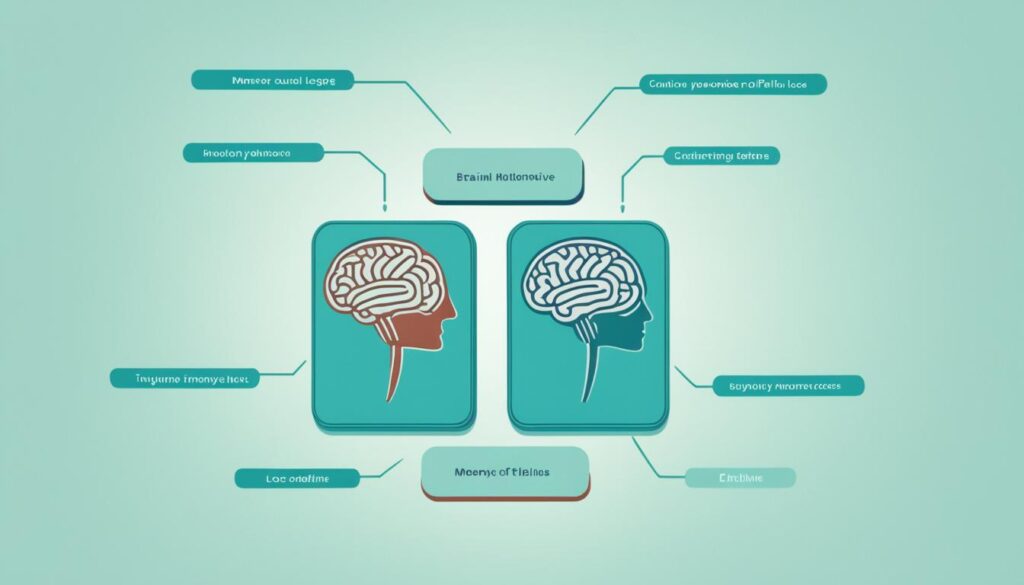Can Eliquis Cause Memory Loss?

Eliquis (apixaban) is a direct oral anticoagulant (DOAC) medication used to reduce the risk of stroke and blood clots in people with atrial fibrillation (AFib).
While memory loss is not a commonly reported side effect of Eliquis, there have been some studies and real-world evidence suggesting a potential link between anticoagulant use and cognitive decline.
This article will explore the available research on Eliquis and memory loss, the mechanisms behind it, as well as management strategies for patients concerned about this potential side effect.
Key Takeaways
- Eliquis (apixaban) is a DOAC used to reduce the risk of stroke and blood clots in people with atrial fibrillation.
- While memory loss is not a commonly reported side effect of Eliquis, some studies have suggested a potential link between anticoagulant use and cognitive decline.
- The specific mechanisms by which Eliquis may impact cognitive function are not fully understood.
- Patients taking Eliquis who are concerned about potential memory issues should consult their healthcare provider.
- Age and lifestyle factors are important risk factors for cognitive decline that should be considered.
Table of Contents
Introduction to Eliquis and Memory Loss
Eliquis (apixaban) is a direct oral anticoagulant (DOAC) approved for the prevention of stroke and systemic embolism in patients with nonvalvular atrial fibrillation.
Discover Your Path to a Longer, Healthier Life!
Take our free quiz to see how your lifestyle measures up to the world's longest-living communities and receive expert tips for a healthier, longer life.
Take the QuizDOACs like Eliquis have become increasingly popular alternatives to the traditional blood thinner warfarin, as they do not require the same level of dietary restrictions and frequent blood monitoring.
What is Eliquis?
Eliquis, known generically as apixaban, is a DOAC medication that works by inhibiting the activity of factor Xa, a key enzyme involved in the blood clotting process.
By reducing the risk of blood clot formation, Eliquis helps prevent strokes and other thromboembolic events in patients with atrial fibrillation, a common heart rhythm disorder.
Potential Side Effects of Eliquis
Like all medications, Eliquis can have potential side effects. The most common side effects associated with Eliquis include bleeding, bruising, and gastrointestinal issues.
While memory loss is not a commonly reported side effect, some studies have suggested a potential link between the use of anticoagulants, including DOACs, and an increased risk of cognitive impairment or dementia.
Memory Loss as a Side Effect
The relationship between Eliquis and memory loss is a topic of ongoing research and debate.
Lifespan Comparison Tool
Compare the life expectancy by the U.S. State
While the available evidence is still inconclusive, some real-world studies have indicated a possible association between the use of anticoagulants, including direct oral anticoagulants (DOACs) like Eliquis, and an increased risk of cognitive decline or dementia.
However, the specific mechanisms by which Eliquis may impact cognitive function are not fully understood.
Mechanism Behind Eliquis and Memory Loss
To understand the potential link between the anticoagulant Eliquis (apixaban) and cognitive function, it’s essential to explore the underlying mechanism of how these blood thinners work.
Anticoagulants like Eliquis function by inhibiting key clotting factors in the blood, reducing the risk of blood clots that can lead to stroke and other cardiovascular events.
By thinning the blood, these medications help prevent the formation of clots that could potentially block blood flow to the brain and contribute to vascular dementia.
How Anticoagulants Like Eliquis Work
Eliquis is a direct oral anticoagulant (DOAC) that works by selectively inhibiting factor Xa, a crucial component in the blood clotting cascade.
By blocking this enzyme, Eliquis disrupts the normal clotting process, making the blood less likely to form dangerous clots that could travel to the brain and cause a stroke or other vascular events.
In the Dallas-Fort Worth Metroplex?
Discover how our cutting-edge medical practice enhances longevity. Detect dementia years in advance, assess your vascular age, and proactively monitor crucial indicators to prevent major issues.
Learn MoreThis anticoagulant mechanism of Eliquis is believed to be one of the ways it may potentially impact cognitive function and increase the risk of vascular dementia.
Relationship Between Anticoagulants and Cognitive Function
The relationship between anticoagulants like Eliquis and cognitive function is complex and not fully understood.
While the blood-thinning properties of these medications may help prevent strokes and reduce the risk of vascular dementia, there is also emerging evidence that the use of anticoagulants, including DOACs, may be associated with a higher incidence of cognitive impairment or decline.
The precise mechanisms behind this potential link are still being investigated, but it is believed to involve factors such as the impact of anticoagulants on cerebrovascular health and the risk of microbleeds in the brain.
Eliquis Memory Loss: Clinical Studies
Researchers have conducted several studies to explore the potential relationship between the use of direct oral anticoagulants (DOACs), such as Eliquis, and the risk of cognitive decline or dementia.
These studies have yielded some intriguing findings that warrant further investigation.
Study on Asian Populations and Dementia Risk
A comprehensive meta-analysis that included 10 previous studies, one of which was conducted in the United States, found that the use of DOACs like Eliquis was associated with a significantly lower incidence of dementia compared to the use of the traditional blood thinner warfarin.
This association was particularly pronounced in Asian populations, with a 12% lower risk of dementia observed in those treated with DOACs versus warfarin.
Findings on Specific NOACs and Dementia Risk
The meta-analysis also revealed that the lower risk of dementia associated with DOACs was not limited to Eliquis (apixaban) alone.
The study found similar benefits with other non-vitamin K oral anticoagulants (NOACs), such as rivaroxaban and dabigatran, suggesting that the potential neuroprotective effects may be a class-wide phenomenon among these newer anticoagulant medications.

Eliquis Memory Loss: Real-World Evidence
While clinical trials have provided valuable insights into the potential impact of direct oral anticoagulants (DOACs) like Eliquis (apixaban) on cognitive function, real-world data can offer an even more comprehensive understanding of this relationship.
A recent study utilizing nationwide data from Belgium has shed light on the eliquis dementia risk real-world data for patients with atrial fibrillation.
Analysis of Belgian Population Data
The Belgian study, which included over 237,000 atrial fibrillation patients, found that the use of noacs vs warfarin was associated with a significantly lower risk of new-onset dementia.
Specifically, the researchers observed a 9% lower risk of dementia in NOAC users compared to those taking the traditional blood thinner warfarin.
Comparison of NOACs and Warfarin
This real-world evidence is particularly noteworthy, as it provides a broader perspective on the cognitive outcomes associated with different anticoagulant therapies.
The findings suggest that the use of NOACs, including Eliquis, may confer a protective effect against the development of dementia compared to the use of warfarin in patients with atrial fibrillation.
Risk Factors and Prevention
Maintaining cognitive health is crucial as we age, and understanding the risk factors for dementia is the first step in developing effective prevention strategies.
One of the primary risk factors for cognitive decline and dementia is age.
The prevalence of dementia increases significantly with advancing age, from around 5% in individuals in their 70s to nearly 40% in those in their 90s.
This highlights the importance of closely monitoring cognitive function in older adults, including those taking anticoagulants like Eliquis.
Age and Cognitive Decline
As individuals grow older, the risk of developing cognitive impairment and dementia increases dramatically.
This is due to a variety of factors, including neurodegeneration, vascular changes, and the accumulation of brain pathologies over time.
Closely tracking cognitive function and addressing any changes or concerns with healthcare providers is crucial for older adults, especially those with additional risk factors like taking anticoagulant medications.
Lifestyle Factors Affecting Cognitive Health
In addition to age, various lifestyle factors can also influence an individual’s risk of cognitive decline and dementia.
Maintaining a healthy diet, engaging in regular physical activity, and stimulating the brain through cognitive exercises and social engagement have all been associated with a reduced risk of risk factors for dementia.
By adopting these lifestyle factors brain health strategies, individuals can potentially help cognitive decline prevention and preserve their cognitive function as they age.

Managing Memory Issues on Eliquis
Patients taking Eliquis (apixaban) who are concerned about potential memory issues or cognitive decline should consult their healthcare provider. Regular monitoring and open communication about any changes in memory or cognitive function can help identify any problems early and ensure appropriate management.
Consulting Your Healthcare Provider
If you are experiencing memory problems on Eliquis, it’s important to talk to your doctor about your cognitive issues. Your healthcare provider can assess your symptoms, rule out other potential causes, and determine if the cognitive changes may be related to your anticoagulant medication. They can then work with you to develop a personalized management plan.
Cognitive Exercises and Brain Health
In addition to medical supervision, engaging in cognitive exercises and activities to support brain health can be beneficial for patients taking Eliquis who are concerned about memory problems. Activities like puzzles, reading, learning new skills, and social engagement can help maintain and potentially improve cognitive function. Adopting a healthy lifestyle with regular exercise, a balanced diet, and stress management can also support cognitive exercises and brain health.
Alternatives to Eliquis
For patients concerned about the potential impact of Eliquis (apixaban) on their cognitive function, there are other anticoagulant options available for the prevention of stroke and blood clots in atrial fibrillation.
These include other direct oral anticoagulants (DOACs) like dabigatran, rivaroxaban, and edoxaban, as well as the traditional vitamin K antagonist warfarin.
Other Anticoagulant Options
Dabigatran, rivaroxaban, and edoxaban are all DOACs that offer alternatives to Eliquis for patients with atrial fibrillation.
These medications work by inhibiting specific clotting factors, similar to Eliquis, to reduce the risk of stroke and systemic embolism.
Each DOAC has its own unique pharmacokinetic profile and set of potential side effects, which may be a consideration for patients concerned about the impact on their cognitive function.
In addition to the DOACs, the traditional vitamin K antagonist warfarin remains an option for anticoagulation in atrial fibrillation.
While warfarin requires more frequent monitoring and dietary restrictions, some studies have suggested it may have a lower risk of cognitive impairment compared to certain DOACs, including Eliquis.
Weighing Risks and Benefits
When considering alternatives to Eliquis, patients and their healthcare providers should carefully weigh the risks and benefits of each anticoagulant option.
Factors to consider include the individual’s stroke risk, bleeding risk, age, and any comorbidities that may influence the suitability of a particular anticoagulant.
The potential impact on cognitive function should also be a key consideration, balancing the risk of stroke with the preservation of cognitive health.
Ultimately, the choice of anticoagulant should be made in close consultation with a healthcare provider, taking into account the patient’s unique medical history, preferences, and the latest evidence on the comparative risks and benefits of the available options.
Conclusion
While the potential link between Eliquis (apixaban) and memory loss remains a subject of ongoing research and debate, the available evidence suggests that the relationship is not as straightforward as initially thought.
The conclusion on Eliquis and memory loss, based on the summary of key points, indicates that the impact of this direct oral anticoagulant (DOAC) on cognitive function is still inconclusive.
Some real-world studies have hinted at a possible association between the use of anticoagulants, including DOACs like Eliquis, and an increased risk of cognitive impairment or dementia.
However, the specific mechanisms by which Eliquis may affect cognitive function are not fully understood. Further research is needed to establish a clear causal relationship, if any, between Eliquis and memory loss.
Ultimately, patients taking Eliquis who are concerned about potential memory issues or cognitive decline should maintain open communication with their healthcare providers.
Regular monitoring and close collaboration can help identify any problems early and ensure appropriate management strategies are implemented.
By staying informed and proactive, individuals can navigate the complexities surrounding Eliquis and memory loss and make informed decisions about their healthcare.

 972-393-1699
972-393-1699





